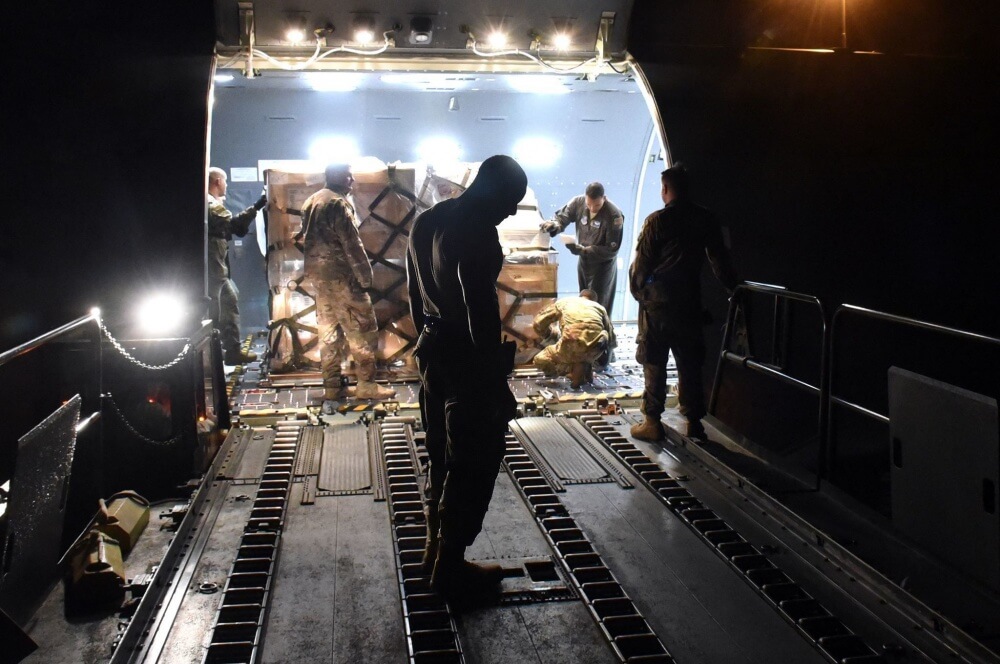The United States Air Force banned the KC-46 tanker from carrying cargo and passengers indefinitely after an incident revealed a new severe deficiency.
A Flight Crew Information File was issued by the Air Mobility Command (AMC) after an incident in which fasteners on the floor of the cargo hold unlocked during flight, reported Defense News on September 11, 2019. Loose cargo may not only injure or kill people on board but also affect the center of gravity of the aircraft enough to make its operation dangerous and cause an accident.
“As a result of this discovery, the Air Force has submitted a Category 1 deficiency report and is working with Boeing to identify a solution,” said AMC spokesman Damien Pickart.
Boeing said it would review the cargo locking system, and try to make the changes to prevent it from opening mid-flight. “The safety of the KC-46 aircraft and crew is our top priority,” the company said.
As a consequence, the KC-46 has also been banned by the USAF from participating in the largest-ever exercise organized by the AMC which should take place at Fairchild AFB and involve all of its other tankers, according to Air Force Mag.
The problem, so far noticed only in one aircraft, comes as another blow to the KC-46 Pegasus program, already plagued with technical problems that led Boeing to pay more than $3 billion in cost overruns.
Upon delivery of the first aircraft to the USAF, it came to light that the “Remote Vision System” (RVS), developed by Rockwell Collins, does not work as intended, especially under certain light conditions. The RVS is composed of several sensors and cameras that should help a boom operator during aerial refueling. But the USAF has discovered discrepancies between the motion shown by the RVS and what was happening in real life. Boeing has agreed to fix the RVS at its expense, a process that could take three to four years.
Another problem resides in the design of the boom itself. During aerial refueling, both a tanker and receiving aircraft must work together to connect the nozzle of the boom to the “receptacle” of the aircraft. However, it was identified that multiple aircraft within the USAF, including the A-10 ground attack aircraft, cannot generate sufficient thrust to connect. Boeing was awarded $55.5 million by the USAF to fix it.
Throughout 2019, deliveries were also suspended twice due to loose tools and foreign object debris (FOD) found in the tankers, including in closed compartments of their wings. The planes had been assembled at Boeing Everett Factory, the company’s biggest production plant.
The KC-46A Pegasus tanker is currently undergoing Initial Operational Testing and Evaluation and recently achieved certification testing for the F-35. However, the new deficiency may disturb the testing schedule, as it prevents the KC-46 from doing one of the core missions for which it was designed. Indeed, the Pegasus is a multi-mission aircraft, and while it was primarily designed for mid-air refueling, it is also expected to operate as an airlifter.
The incident could also profit Lockheed Martin and Airbus. The two manufacturers signed a memorandum of agreement in December 2018, to “jointly explore opportunities to meet the growing demand for aerial refueling for US defense customers”. They could present the USAF with a leasing opportunity for the A330 MRTT, a direct competitor of the KC-46, that has known a more successful debut within several air forces.
AeroTime has reached out to Boeing and the Air Mobility Command for comment but did not receive an answer at the time this article was published.

